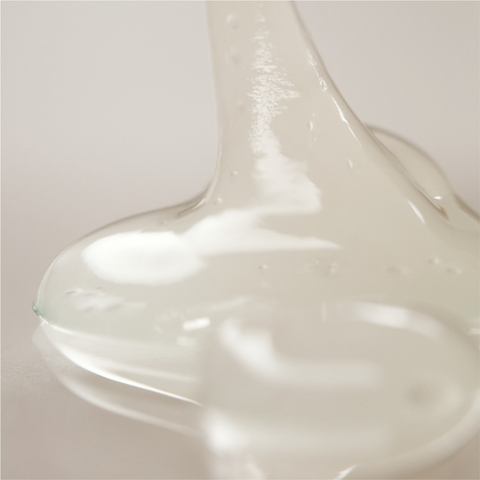In the world of minerals, Magnesium is among the most impressive of the bunch. Every cell in the human body needs it to function properly. Magnesium also supports everything from blood sugar management, heart health, and digestion to promoting cognitive function, a healthy mood, and sleep. Given its scope, it may be surprising to learn that approximately half of adults in the United States don’t get enough and have a Magnesium deficiency. Hopefully, you’re not among them — but if so, it could be in your best interest to take supplemental Magnesium. There are different types of Magnesium to choose from, which can address niche concerns. Magnesium L-Threonate (aka Magnesium Threonate) is one such type. It may not be as well-known as others, but it has many compelling potential benefits.
Magnesium L-Threonate was only identified in 2010, making it among the newest Magnesium formulations on the block. It’s a combination of Magnesium and Threonic Acid, the latter of which is a metabolite of Ascorbic Acid (Vitamin C). There’s a lot more to uncover about this type of Magnesium since it’s still in its relative infancy. Nonetheless, research to date suggests it has unique strengths for brain health, cognition, and pain management.
Keep reading to discover the key benefits of Magnesium L-Threonate. And later: alternatives to Magnesium L-Threonate worth considering.
1. Highly Bioavailable
It’s one thing to take supplements, yet another to ensure that you’re actually absorbing them well so that their benefits can take hold. Research suggests that Magnesium L-Threonate is among the most bioavailable forms of Magnesium supplementation. This means you can anticipate getting a bigger bang (and more robust benefits) for your buck compared to less bioavailable types of this essential mineral. If you are looking for increased Magnesium absorption, consider opting for a more bioavailable type like Magnesium L-threonate.
P.S. While it’s almost always ideal to get your micronutrients (i.e., vitamins, minerals, and antioxidants) from whole foods, Magnesium may be an exception to the rule. Theoretically, it’s possible to reach your recommended dietary allowance through foods with Magnesium alone. However, modern soil depletion, inadequate intake of Magnesium-rich foods, and bioavailability issues are a few factors that stand in the way of getting your ideal Magnesium intake from one day to the next. Because of these obstacles, it’s often a good idea to take a Magnesium supplement along with consuming mineral-rich foods— especially if you know that you’re already lacking the nutrient.
2. Permeates the Blood-Brain Barrier
One of the most notable benefits of Magnesium L-Threonate is its ability to cross the blood-brain barrier. As a 2015 review in the journal Cold Spring Harbor Perspectives in Biology explains, the blood-brain barrier “tightly controls the microenvironment of the central nervous system to allow for proper neuronal function.” Moreover, crossing the blood-brain barrier is elemental for developing therapeutic products that are meant to act on the central nervous system.
Given that Magnesium L-Threonate can permeate the blood-brain barrier, it’s able to raise Magnesium levels in the brain specifically (say, versus the digestive tract, as is the case with some types of Magnesium, including Magnesium Glycinate.) In fact, this is one of the biggest distinctions between Magnesium L-Threonate vs. Glycinate. It’s largely because of this property that Magnesium L-Threonate may offer benefits for cognition, brain health, and even mental health.
3. May Boost Memory
Magnesium supplementation can also help boost memory and cognitive function. One 2022 double-blind, placebo-controlled study published in the journal Nutrients investigated the impact of Magnesium L-Threonate on memory. It included 109 Chinese participants aged 18 to 65, who either took 2 grams of a patented form of Magnesium L-Threonate (fortified with Vitamin C and Vitamin D) or a placebo for 30 days. By the end of the study, participants in the supplement group significantly improved their overall memory quotient scores. They also had notable improvements in directed memory, paired-association learning, free recall of pictures, recognition of meaningless figures, and portrait-features memory.
Particularly noteworthy is the finding that older adults logged better results than younger participants. No matter your biological age, it’s never too late to start supplementing with Magnesium for brain health.
Next, a 2013 study in male rats, published in Pain Physician Journal, investigated the effects of Magnesium L-Threonate on short-term memory issues associated with chronic neuropathic pain. Compared to rats in the control group, rats that ingested oral Magnesium L-Threonate for 2 weeks exhibited prevention and restoration of short-term memory deficits. The researchers concluded that Magnesium L-Threonate supplementation could be a simple yet strong treatment option for those with this form of memory loss. (It’s worth noting that results from animal studies won’t necessarily translate to the same or similar outcomes in humans. That said, more research in human subjects is necessary to clarify this potential benefit of Magnesium L-Threonate.)
4. May Support Mental Health
Among its many duties, Magnesium has the ability to promote a healthy mood and manage stress, as well as boost other markers of mental well-being. In fact, research shows that low levels of Magnesium in the brain are common in people with depression and other mood disorders.
Since Magnesium L-Threonate can successfully cross the blood-brain barrier and boost Magnesium levels in the brain, it may be one of the most effective types of Magnesium for mental health. On top of keeping low mood, anxiety, and stress at bay, Magnesium L-Threonate may also have positive outcomes for:
- Migraines
- Headaches
- Neurodegeneration
5. May Reduce Pain
A 2023 study published in the journal Cancer Medicine found that Magnesium L-Threonate may be potent enough to not only alleviate pain in cancer patients but also permit them to reduce their daily intake of opioids. The randomized, double-blind trial involved 83 cancer patients (who regularly took opioids for pain treatment) at a hospital in Shanghai, China. Compared to the placebo group, participants who took 1.5 or 2 grams of Magnesium L-Threonate over the 90-day trial were better able to enhance the pain-relieving effect of opioids. In turn, they were able to reduce the required dosage of the medication.
Note: No matter if you’re dealing with serious health issues or if you clear your annual physical with flying colors, it’s always advised to consult a health professional before taking new supplements or making any major dietary changes. It’s also crucial to continue with your prescribed medications and treatment plans rather than taking matters into your own hands.
6. May Ease Constipation
In the same 2023 study cited above, participants who supplemented with Magnesium L-Threonate were able to significantly relieve constipation caused by opioid intake. This outcome isn’t too surprising, given that several forms of Magnesium can help you poop.
Magnesium helps to increase the amount of water in the intestines, which softens stools and makes it easier to pass bowel movements. Moreover, Johns Hopkins Medicine notes that proper muscle contractions in the large intestine are necessary to prevent constipation. Magnesium supplements can help support muscle function, thus offering another avenue to pass healthy stools and promote digestive regularity.
P.S. If constipation and digestive distress are your norm, you’ll want to be wise with which form of Magnesium you take. Some are ideal for intestinal absorption and digestive health benefits, while others (or an excessive intake of Magnesium supplements at large) may end up causing more harm than good. That said, the best types of Magnesium for digestion include:
- Magnesium Citrate
- Magnesium Gluconate
- Magnesium Lactate
- Magnesium Oxide

Choosing a High-Quality Magnesium Supplement
Magnesium L-Threonate is one of the newest formulations of Magnesium. The young but mighty form already demonstrates impressive benefits and prowess — especially for brain health, mental health, and pain relief. It may also promote digestive regularity and help to alleviate constipation.
In short, Magnesium L-Threonate is a well-rounded, highly bioavailable form of this essential mineral. However, it’s less common than other types, and there’s still a lot to discover about it. Should you wish to seek alternative, more widely studied varieties but still reap the potential benefits of Magnesium L-Threonate, it may be in your best interest to take a natural Magnesium supplement with perks for brain health, digestion, and beyond.
Magnesi-Om® offers 3 forms of bioavailable Magnesium, each of which are backed by clinical research for specific results. Altogether, they offer a comprehensive range of mind-body benefits:
- Chelated Magnesium Gluconate and Acetyl Taurinate support muscle relaxation and cognitive function*
- Magnesium Citrate supports regular bowel movements*
The Magnesium powder is bolstered by L-Theanine, a nootropic that helps provide cognitive support for feelings of alert relaxation and mental clarity without over-stimulation.*
While Magnesium L-Threonate has its benefits, Magnesi-Om® offers additional support for muscle relaxation and feelings of calm — all the while supporting healthy cognitive aging, brain function, regular bowel movements.* It’s available in tasty Berry and Blue Lemon flavors, as well as an unflavored Naked option for those who prefer a neutral palate.
For best results, mix 1 tsp of the Magnesium powder in water and enjoy it daily. Since Magnesium is also famed for its ability to support sleep, it’s worth enjoying during your wind-down time before hitting the hay.
Sources
- Internationa agency for research on Cancer. Threonic acid. http://exposome-explorer.iarc.fr/compounds/1613
- PubMed Central. The Blood–Brain Barrier. https://www.ncbi.nlm.nih.gov/pmc/articles/PMC4292164/
- PubMed Central. A Magtein®, Magnesium L-Threonate, -Based Formula Improves Brain Cognitive Functions in Healthy Chinese Adults. https://www.ncbi.nlm.nih.gov/pmc/articles/PMC9786204/
- PubMed. Magnesium L-threonate prevents and restores memory deficits associated with neuropathic pain by inhibition of TNF-α. https://pubmed.ncbi.nlm.nih.gov/24077207/
- Cancer Medicine. Oral application of magnesium-L-threonate enhances analgesia and reduces the dosage of opioids needed in advanced cancer patients—A randomized, double-blind, placebo-controlled trial. https://onlinelibrary.wiley.com/doi/10.1002/cam4.4922
- Johns Hopkins.. 5 Things Your Poop Can Tell You About Your Health. https://www.hopkinsmedicine.org/health/wellness-and-prevention/5-things-your-poop-can-tell-you-about-your-health














